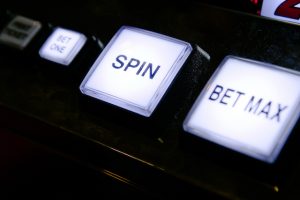Betika livescore cz Impacts Brain Health
 Betika livescore cz shows live sports results. It keeps users online every minute. Betika livescore cz fuels quick bets and predictions. Betika livescore cz triggers constant checking habits. It can affect how the brain thinks and reacts. Betika livescore cz supports continuous gambling and mental stimulation patterns.
Betika livescore cz shows live sports results. It keeps users online every minute. Betika livescore cz fuels quick bets and predictions. Betika livescore cz triggers constant checking habits. It can affect how the brain thinks and reacts. Betika livescore cz supports continuous gambling and mental stimulation patterns.
Betika livescore cz craves reward
Each time someone wins at Betika livescore cz, the brain releases dopamine. This chemical creates a feeling of happiness and satisfaction. Dopamine motivates users to repeat the same activity. The brain starts linking gambling with personal pleasure. Even small wins cause this strong chemical reaction. Losses also bring strong emotions that trigger cravings. The cycle of loss and win becomes a mental trap. With repeated betting, the brain stops recognizing other sources of joy. Normal activities feel boring without the gambling thrill. Eventually, more money is used to reach the same excitement.
Constant checking alters focus and memory
Betika livescore cz pushes users to stay alert. Every minute, users check scores and outcomes. The habit builds mental tension and anxiety. The brain learns to seek fast information every time. This weakens attention span and short-term memory. People forget daily tasks due to betting focus. The mind shifts from real-life plans to betting activities. Users start delaying decisions and avoiding long thoughts. Daily actions become reactive, not thoughtful.
Habitual betting affects emotional balance
Repeated gambling changes how users handle emotions. Wins bring short highs that fade quickly. Losses bring anger, sadness, and self-blame. These mood swings increase with frequent betting. The brain connects joy with risk and disappointment. Emotional control weakens as betting habits grow. Mood becomes dependent on the day’s result. Relationships suffer as emotions grow unpredictable.
Stress of constant hope and loss
Betika livescore cz gives real-time match updates. This keeps hope alive throughout the match. Each missed goal or red card spikes tension. The body reacts with fast heartbeats and sweating. The brain triggers panic and fear even from small losses. This repeated tension builds long-term mental stress. People become restless and worry more about small issues. Sleep gets interrupted by match memories and regret.
Gambling weakens decision-making skills
The brain uses a part called the prefrontal cortex to make decisions. Gambling overstimulates this part with repeated urges. Choices become based on emotion, not logic. Users bet more during anger or excitement. Patience disappears with each rush. Daily choices become careless and rushed. The brain loses its ability to balance risk and reward.
Addiction pathways form with repeated habits
The brain forms habits through repeated actions. Betika livescore cz promotes quick rewards. These create addiction pathways over time. Neurons in the brain start forming loops. These loops increase cravings and betting urges. Even when losses pile up, users feel pulled toward betting. The mind keeps replaying what could have been.
Gambling replaces healthy daily routines
Users spend hours tracking games and odds. Regular routines like eating or exercising get ignored. Sleep is lost while watching late matches. Morning energy fades due to lack of rest. Time spent with friends and family reduces. The brain adjusts to this unhealthy lifestyle pattern.
Losses impact self-worth and confidence
Each lost bet lowers personal confidence. Users blame themselves and feel defeated. The brain begins linking self-worth with betting results. Success outside gambling loses meaning. This leads to self-doubt and negative thinking. Users withdraw and feel ashamed of constant losses.
Children exposed to gambling behavior
Kids watch adults using Betika livescore cz. They copy habits by placing small bets. Their brains are still developing and adapt fast. Gambling affects their emotional and mental growth. They grow up linking fun with betting rewards. Future focus shifts away from long-term goals.
Peer pressure amplifies mental decline
Friends often share their bet slips and wins. Users feel forced to match their behavior. The brain compares others’ outcomes with personal losses. This fuels regret and emotional pain. Users try to catch up by betting more. This creates a dangerous spiral of debt and distress.
Digital noise from constant betting content
Betika livescore cz shows frequent match updates. Social media also displays betting news and jackpots. The brain receives a flood of alerts and graphics. Over time, it struggles to filter real from fake. Users develop overstimulation from digital exposure. They become numb to warnings and consequences.
Over-reliance on predictions dulls analysis
The platform gives ready predictions and odds. Users stop thinking deeply about matches. The brain becomes lazy in analysis and logic. Guesswork replaces research and skill. This weakness spreads to school and work decisions. Users avoid complex thought and choose shortcuts.
Fake wins increase mental confusion
Sometimes users win small bets to build hope. These fake wins push them to stake more. The brain reads them as real success stories. Long-term losses become hidden in temporary wins. This illusion makes quitting harder. It feeds confusion and loss of reality.
Gambling habits affect physical health
Brain and body work together during betting. Long screen time causes headaches and eye strain. Stress hormones rise with each bad match result. Blood pressure increases from repeated losses. The immune system weakens due to emotional fatigue. Physical pain grows alongside mental damage.
Savings get replaced by risky spending
Money meant for school or rent goes to betting. Users risk future security for present pleasure. The brain adjusts to short-term goals only. Planning becomes rare and weak. This short-sighted behavior spreads to other life areas. Bills go unpaid as bets grow bigger.
Users lie to hide betting effects
People start lying about their betting losses. They hide stress, debt, and pain. The brain stores guilt and regret inside. Over time, this leads to emotional breakdowns. Isolation increases, and trust is broken. People lose friendships and opportunities.
Winning streaks boost dangerous confidence
After a few wins, users feel unbeatable. The brain feeds this illusion with dopamine. Confidence rises without logic or planning. Losses that follow feel sharper and crueler. This false high sets up greater future pain.
Recovery needs time and consistency
The brain can heal from gambling effects. But it requires discipline and support. Users need new habits that replace old urges. Savings and reading help rebuild balance. Each day away from betting brings clarity. Emotions calm, and sleep returns.
Support groups help rewire the brain
Meeting others with shared struggles builds strength. Talking releases guilt and shame. The brain begins forming new thought loops. Positive actions replace harmful habits. Progress becomes real with support and patience.
Train your brain for real peace
Betika livescore cz seems thrilling but drains your mind. Gambling traps the brain in stress and regret. The brain heals when peace replaces pressure. Kenya’s youth deserve calm and progress. Smart choices bring lasting satisfaction. Protect your mind by choosing growth and stability every day.




